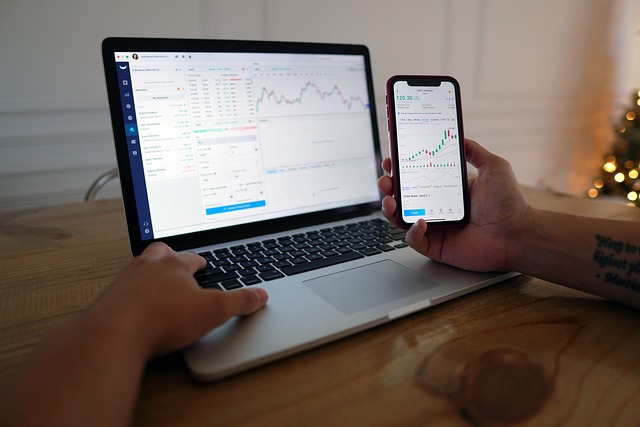What is a Retail Investor?

What is a Retail Investor? A retail investor is an individual investor who buys and sells securities for their personal account, as opposed to acting on behalf of another person or entity. Retail investors typically make smaller investments compared to Institutional Investors and are not as sophisticated in their investment approach.
What Do Retail Investors Invest in?
Retail investors often make investment decisions based on their personal financial goals, such as saving for retirement or generating additional income. They make investments in a variety of assets, such as stocks, bonds, mutual funds, exchange-traded funds (ETFs), real estate, and commodities. Their goal is to build wealth over time. They are not Professional investors or Institutional Investors, who often have access to more resources and expertise. Retail investors can trade through online brokers, or invest in managed portfolios offered by robo-advisors or traditional asset management firms.
What are the Benefits of Being a Retail Investor?
Being a Retail Investor offers numerous benefits, some of the benefits are:
- Control: Retail investors have full control over their investments and can make their own decisions about what to buy when to buy, and when to sell.
- Flexibility: Retail investors have a wide range of investment options, including stocks, bonds, mutual funds, exchange-traded funds (ETFs), and more.
- Accessibility: With the rise of online brokerage platforms, it’s easier than ever for retail investors to access the market and invest in a variety of securities.
- Potential for higher returns: By investing in individual securities or a well-diversified portfolio, retail investors may be able to achieve higher returns than if they had simply invested in a savings account or other low-risk investment.
- Long-term wealth building: By investing for the long term, retail investors can potentially build wealth over time and reach their financial goals.
Besides bringing liquidity to the stock market Retail investors often bring new ideas and insights into the market that offer new opportunities for growth and stability. By participating in the stock market, these investors also help contribute to economic growth, creating an environment that is open and accessible to everyone.
What Are Some Risks of Being a Retail Investor?
Being a Retail Investor also comes with some risks. It’s important for retail investors to understand these risks and to carefully consider their investment goals, risk tolerance, and time horizon before making any investment decisions. They may also want to seek advice from a financial professional to help minimize their risks and maximize their potential. The risks associated with being a retail investor are:
- Market risk: The value of investments can fluctuate in response to changes in the market, which can lead to losses.
- Credit risk: If a company in which you’ve invested defaults on its debt obligations, your investment may lose value.
- Liquidity risk: If you need to sell an investment quickly, you may not be able to do so at a price that you’re willing to accept.
- Diversification risk: If you don’t diversify your portfolio, you could be exposed to a higher level of risk if one particular security or sector performs poorly.
- Emotional risk: Making investment decisions based on emotions, such as fear or greed, rather than a well-thought-out strategy can lead to poor investment decisions and potential losses.
- Information risk: Retail investors may not have access to the same level of information as institutional investors, which could lead to misinformed investment decisions.
Factors That Can Affect Retail Investment Decisions?
There are a variety of factors that can influence the decision-making process for retail investors. These include personal finances and goals, risk tolerance level, market conditions, knowledge of investments and strategy, access to research and advice from professionals, and psychological biases. Additionally, there is the potential for certain external factors to have an impact, such as media attention or regulation changes. It’s important for retail investors to take all these factors into account when making investment decisions.
How to Become a Retail Investor?
Just about any adult can become a Retail Investor. If someone wants to become one they can follow the following steps:
- Open a brokerage account: Choose a brokerage firm that meets your investment needs and offers the products and services you require.
- Fund your account: Transfer money into your brokerage account so you can start investing.
- Educate yourself: Before investing, it’s important to understand the basic principles of investing and the types of securities available to you.
- Develop an investment strategy: Determine your investment goals, risk tolerance, and time horizon to guide your investment decisions.
- Start investing: Choose the securities you want to invest in and place your first trades.
- Monitor your portfolio: Regularly review your investments and adjust your portfolio as needed to meet your goals and respond to market conditions.
If you want to be a successful Retail Investor it’s important to keep in mind that retail investing always carries some degree of risk, and it’s important to carefully consider your options and seek advice from a financial professional before making any investment decisions.


